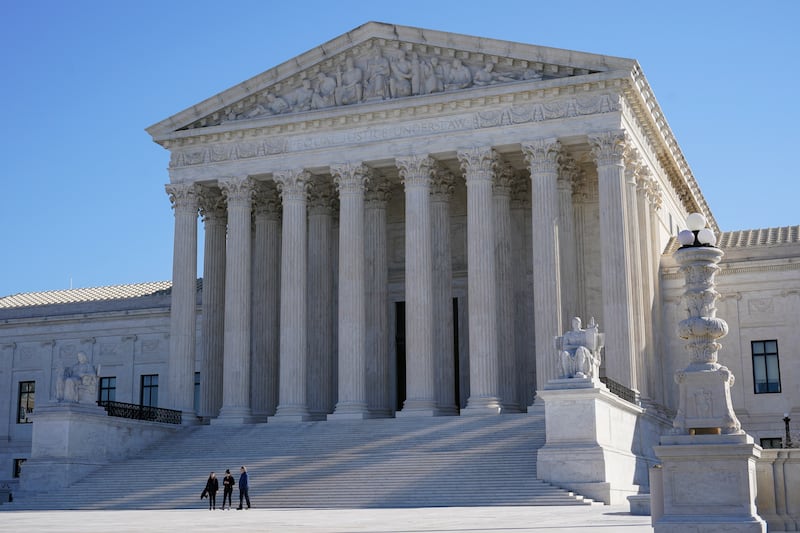You still have the right to remain silent if you are arrested, but now have fewer legal options for recourse if a police officers fails to inform you of your rights at the time of arrest.
That’s thanks to a Supreme Court ruling on Thursday that says people being arrested who are not warned about their Miranda rights can’t sue police officers for damages under civil rights law, “even if the evidence was ultimately used against them in their criminal trial,” according to CNN.
Vega v. Tekoh was decided by a 6-3 vote, with all six Republican-appointed justices siding in favor.
What the ruling means for Miranda rights: Miranda warnings came out of a 1966 Supreme Court ruling in Miranda v. Arizona — wherein defendants must be warned of their Fifth Amendment right not to incriminate themselves — and have been popularized through television shows like “Law and Order.”
The Supreme Court’s decision protects officers from being sued for failure to inform a suspect of their rights, but it does not affect evidence obtained in violation of Fifth Amendment rights being excluded from trial. Justice Samuel Alito, who wrote the decision, said that Miranda warnings aren’t a right, but they protect the rights included in the Fifth Amendment.
CNN Supreme Court analyst Steve Vladeck explains what the decision means for Miranda rights:
- “Under this ruling, the only remedy for a violation of Miranda is to suppress statements obtained from a suspect who’s not properly advised of his right to remain silent. But if the case never goes to trial, or it the government never seeks to use the statement, or if the statement is admitted notwithstanding the Miranda violation, there’s no remedy at all for the government’s misconduct.”
The three dissenting justices argued that the ruling may encourage or enable police to pressure people in custody, according to The Independent.
What are Miranda rights? Here is a typical Miranda warning with a basic description of rights, according to MirandaWarning.org:
- You have the right to remain silent.
- Anything you say can and will be used against you in a court of law.
- You have the right to an attorney.
- If you cannot afford an attorney, one will be provided for you.
What to do if you’re arrested: With the Supreme Court’s ruling, it may be up to the defendant to know their rights. Whether you are innocent or not, the ACLU recommends you ask for a lawyer immediately, claim your right to remain silent and don’t say anything or sign anything without a lawyer.
According to the Innocence Project, police can lie and make false claims during interrogations in order to extract confessions, although Utah recently passed a law that prevents police from lying to minors — who can be especially susceptible to false claims.
Arrestees are allowed the right to make a local phone call. The ACLU points out that “the police cannot listen if you call a lawyer,” but “they can and often do listen if you call anyone else.”


